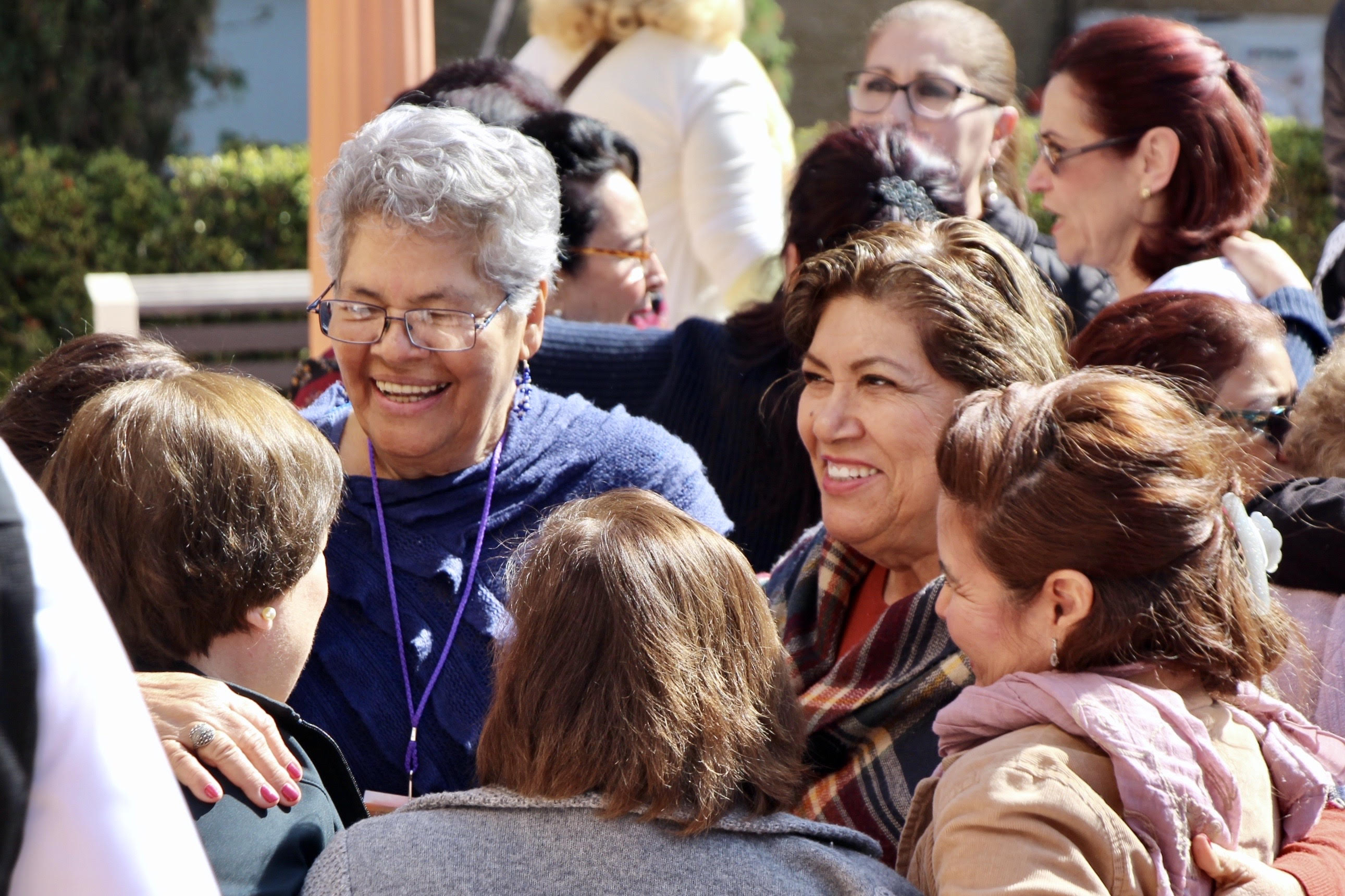 MESSAGE FROM THE PRESIDENT OF WUCWO
MESSAGE FROM THE PRESIDENT OF WUCWO
Now more than ever, in this situation caused by the Coronavirus, we as women feel we are co-responsible, together with men, to think and reflect on Fratelli tutti in order to raise awareness and educate towards the application of the treasure that the encyclical means for humanity. In this way we will move from the uncertainty in which we live to the certainty of the objective to be achieved: fraternity-sorority and social friendship, from indifference to commitment, from consumer individualism to generous solidarity, from isolation to social fabric, from declarations to facts.
With Fratelli tutti we can open a new chapter in the history of humanity that demands and promotes a lifestyle different from the one many of us are used to, a lifestyle whose core is the culture of encounter. For a moment, let us imagine such a world; let us imagine that, by means of a drone navigating in our atmosphere, we can see an area of the planet. The “image” would be that of a number of networks of encounters in which each person is recognised with his or her own face and is responsibly linked to others in order to cooperate for peace and justice.
A society where no one is isolated or considered useless or dispensable, where differences coexist and complement each other, where we recognise that we can always learn something from each other, is fundamental for everyone, but especially for us women. Why? Because our equal dignity with respect to men is so often proclaimed but denied due to exclusion, discrimination and violence. As the encyclical denounces, women's rights are not equally respected. The time has come to shape together, men and women, a humanity based on bonds of friendship and fraternity.
Why do we women feel particularly co-responsible in the challenge proposed to us by Fratelli tutti?
Because we women want to and know how to take care of a sick society. For centuries we have been doing so with the family, caring for children, fathers, mothers and the most fragile members of the family... I would say that we are quite expert in the culture of care, not only for those most in need, but also for our homes. Our “homes” are shaped by women and shape them at the same time. As a matter of fact, the first roof that each of us has had on this earth, without a doubt, has been the body of a woman. That was our first “home.” How can we not now take care of our “Common Home,” our planet, to “think of ourselves more and more as a single family dwelling in a common home,” as the Pope says (FT 17)!
And what can we women count on to contribute to a world of brothers and sisters?
With our feminine identity which, on the one hand, facilitates the revolution of tenderness, of closeness to incorporate the discarded into our own community of belonging. On the other hand, our affectivity impels our intelligence to think and find new solutions. Love is always creative, powerful in reflection and intuition. Women's leading role is not only vital for rethinking close relationships, but also for “macro-relationships,” such as social, economic and political relationships. (Cf. FT 181)
I would like to underline the particular feminine suitability for generating relational goods that are essential for social friendship. Relational goods are therefore intangible relationships, in which we have to give so that the other can also give in return. They are characterised by the fact that they are replicable, that is, they generate a reaction in accordance, although not identical to what has been received, even at distant moments in time and with other individuals. They are goods that are not consumed when they are used, but are increased. They are relationships that empower those who take part in them, in their integrity as human beings. And women by nature are generators of life and of these relationships, marked by social values such as trust, fidelity and cooperation. We are made to foster communion, to be artisans of healing and renewed encounter processes that contribute to the new face of humanity.
What steps can we take to achieve this new face of humanity?
Let us examine in ourselves our own capacity for dialogue: do we approach those we consider different? Do we look at them? Do we listen to them? Do we try to understand them? Do we look for points of contact? Because if we do not, we cannot honestly conjugate the verb: to dialogue. And dialogue is the initial springboard for these processes. Let us start from the bottom up, from the local to the global level, from each of our organisations.
To celebrate our International Day, I invite you to remember the words of Jesus, “Whoever does not love the brother, whom he can see, cannot love God, whom he has not seen” (1 Jn 4:20), and to intensify the concrete projects that lead our families to educate in the transmission of love and fraternity, of living together and sharing, of attention and care for others. These “good practices” will support our proposals at the international agencies in which we usually work.
To carry out this commitment we count on God's help, on prayer and on our networking. Thank you all in advance and thanks to Pope Francis for Fratelli tutti!
 Messages
Messages  President General's Messages
President General's Messages  PRESIDENT'S MESSAGE FOR INTERNATIONAL WOMEN'S DAY - 8 March 2021
PRESIDENT'S MESSAGE FOR INTERNATIONAL WOMEN'S DAY - 8 March 2021 Messages
Messages  President General's Messages
President General's Messages  PRESIDENT'S MESSAGE FOR INTERNATIONAL WOMEN'S DAY - 8 March 2021
PRESIDENT'S MESSAGE FOR INTERNATIONAL WOMEN'S DAY - 8 March 2021 MESSAGE FROM THE PRESIDENT OF WUCWO
MESSAGE FROM THE PRESIDENT OF WUCWO